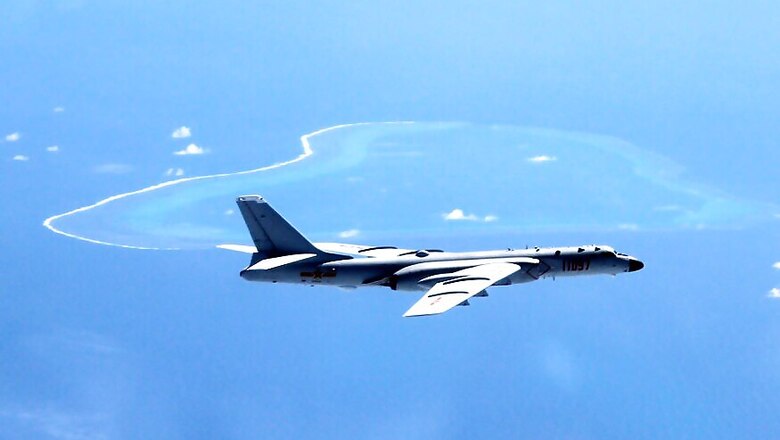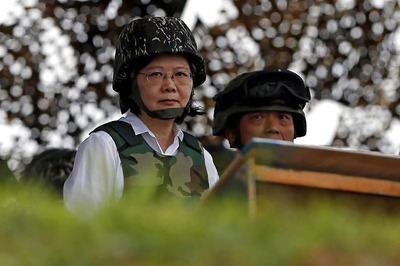
views
Beijing: The Chinese air force has landed long-range bombers for the first time on an airport in the South China Sea, a state newspaper said on Saturday, in a move likely to further fuel concerns about Beijing's expansive claims over the disputed region.
The China Daily newspaper reported that the People's Liberation Army Air Force conducted takeoff and landing training with the H-6K bomber in the South China Sea.
China is pitted against smaller neighbors in multiple disputes in the South China Sea over islands, coral reefs and lagoons in waters crucial for global commerce and rich in fish and potential oil and gas reserves.
A statement from the Defense Ministry late Friday said the exercise was conducted on an island reef, but it did not specify when or where, saying only that it took place recently at a "southern sea area." It involved several H-6Ks taking off from an air base then making a simulated strike against sea targets before landing, the ministry said.
Wang Mingliang, a military expert, was quoted in the statement as saying that the takeoff and landing exercises will help the air force improve its "real combat ability against all kinds of marine security threats."
The Washington-based Asia Maritime Transparency Initiative, using Chinese social media posts, identified the location of the exercise as Woody Island, China's largest base in the Paracel Islands.
With a combat radius of nearly 1,900 nautical miles (3,520 kilometers), the H-6K bomber would put all of Southeast Asia in its range from Woody Island, AMTI said.
Farther south in the Spratly group of islands, China has constructed seven man-made islands and equipped them with runways, hangers, radar and missile stations, further cementing its vast territorial claims in the busy waterway.
The U.S. and others accuse Beijing of militarizing the region to bolster its claims. Adm. Phil Davidson, the new head of the Pacific Command, said recently that China had reached the tipping point in its control over the South China Sea.
China's South China Sea bases can be used to challenge the U.S. presence in the region, "and any forces deployed to the islands would easily overwhelm the military forces of any other South China Sea-claimants," Davidson wrote in recent testimony to Congress.




















Comments
0 comment